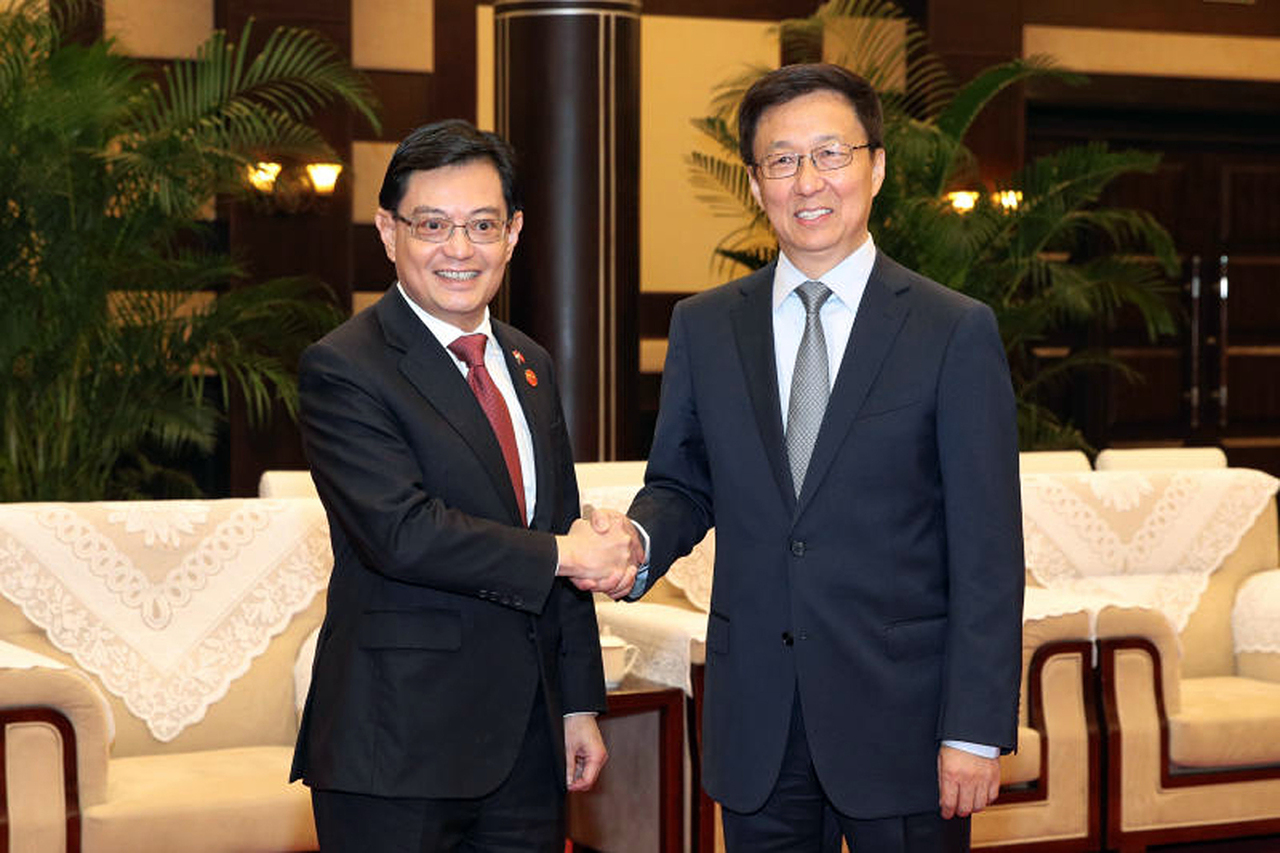Singapore can contribute to China's economic growth: DPM Heng
Sign up now: Get insights on Asia's fast-moving developments

In a file photo taken on Oct 15, 2019, DPM Heng Swee Keat (left) and Chinese Vice-Premier Han Zheng meet in Chongqing, China.
PHOTO: MCI
BEIJING - As China shifts to a new economic strategy of developing self-reliance and leaning more on domestic consumption, Singapore can play a part in that growth, says the Republic's Deputy Prime Minister Heng Swee Keat.
For one thing, Singapore can help to better connect the East Asian giant with markets in South-east Asia, especially with global trade flows and supply chains altering.
Mr Heng made the remarks in an op-ed published in Chinese-language paper Lianhe Zaobao on Tuesday (Dec 28), as he took stock of the bilateral cooperation ahead of his virtual meeting with his Chinese counterpart Han Zheng on Wednesday.
The two leaders, along with other ministers, will be discussing new areas to collaborate on during the annual Joint Council for Bilateral Cooperation summit, the highest-level forum for cooperation that is now into its 17th year.
Mr Heng singled out the inter-governmental land-sea trade corridor project - the Chongqing Connectivity Initiative - as being useful in linking the less developed western region of China with South-east Asia.
The project, started in 2015, does not just focus on how goods are physically moved from China to the region, but also how much faster and more seamless the process can be, by speeding up customs clearance, documentation and trade financing, which are all done digitally.
As the world grappled with global supply chain disruptions caused by the Covid-19 pandemic, cargo flows along the corridor in the first half of this year went up by 35 per cent, compared with the same period last year.
In the op-ed, Mr Heng also pointed to digital connectivity and sustainable development as having significant potential for collaboration.
With China's digital economy contributing to one-third of its gross domestic product, and South-east Asia's fast-growing digital economy that could hit US$300 billion (S$407 billion) by 2025, cooperation in this sphere will benefit companies on both sides, said Mr Heng.
He cited digital trade activities that include blockchain solutions, which could help with more secure cross-border transactions and reduce the cost for businesses operating in both countries.
Mr Heng also pointed to the urgent need to address climate change.
"Sustainable development is a critical priority not just for Singapore and China, but for every nation," he wrote.
The two countries have set out their own green targets under their respective national plans, and can come together to develop their circular economies, clean energy trade and investments.
Green finance is one of Singapore's priorities in its partnerships with Chongqing, Guangdong, Shanghai and Suzhou, said Mr Heng.
"Singapore can better support the green and transition financing needs of Chinese corporates. There are other areas that both countries can work together, and with partners in the region, to catalyse sustainable development."
Other areas in which Mr Heng hopes to work with China include exchanging ideas on how to shape policies around an ageing population and restore flight connections suspended by Covid-19.
Wednesday's meeting is expected to yield a slew of agreements. Mr Heng and Vice-Premier Han will also jointly announce the name of the panda cub born to Kai Kai and Jia Jia in Singapore.


